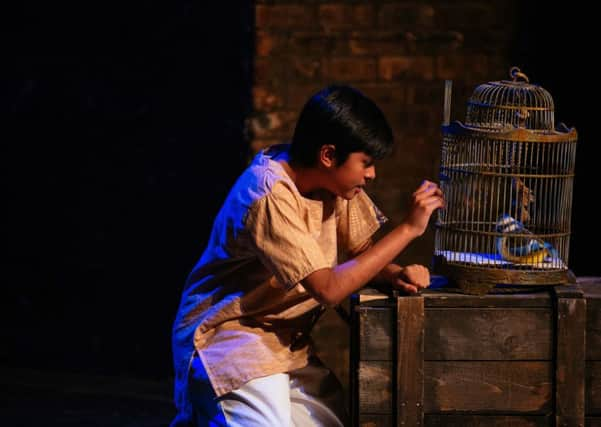Joyce McMillan: NTS's Home Away festival makes a world of difference


In many ways, this has been a difficult tenth anniversary year for the National Theatre of Scotland. The sudden departure of their artistic director Laurie Sansom back in April, and the slow process of finding his replacement, have cast a long shadow over what should have been a year of celebration after a triumphant first decade, culminating in the company’s imminent move to their new headquarters at Rockvilla in Glasgow.
At Tramway, though, the mood is joyful, as NTS Learn brings together companies it has worked with over the years from Chicago, New Delhi, Brisbane, Dundee, Glasgow, South Uist, Jamaica, Rio de Janeiro and the Scottish Highlands – many of them first contacted as part of the company’s massive Tin Forest project during the 2014 Commonwealth Games – for almost a week of workshops, debate, reflection and performance, focused on what’s fast becoming a whole new age for community participation in the arts.
Advertisement
Hide Ad“It is a huge project,” says NTS Learn director Simon Sharkey, reflecting on a festival that has involved bringing many companies of a dozen performers or more thousands of miles to Glasgow. “Some of the performers have never left their own communities before, far less travelled to another country. But ten years on from the Home event that launched NTS, we felt it was time to celebrate both our continuing work in Scotland, and the international links we’ve made. We’ve had terrific support all the way from our main partners, the Gulbenkian Foundation and the British Council, as well as Glasgow Life, the Tramway, and others. And I’m just delighted at the way everyone seems to be seizing the chance to share ideas and experiences, despite all the pressures of the journey some of them have made to be here.”
And in conversation with some of the group leaders gathered in Glasgow, it’s impossible not to be impressed by their shared experience of theatre work that delves deep into the lives of communities, and can begin real processes of change. Sarah Rose Graber from Chicago talks about the Northwestern Settlement in that city, which has been helping new migrants to Chicago for more than a century, and about the work of its Adventure Stage Company. Lesley-Anne Welsh of the Manifesto company in Kingston, Jamaica – whose Parkour-based show Run Free is partly based on NTS Learn’s own groundbreaking youth show Jump – talks about the urgent need to channel the huge music and dance talent of young Jamaicans into an entrepreneurial way of life that can earn them a living.
Dr Saif Khan, of Glasgow’s small Bangladeshi community, talks movingly about the role Simon Sharkey and the NTS have played in enabling the community to reach out to the rest of the city and the world with their powerful first-ever show MEMORi, based on vivid personal memories of Bangladesh’s traumatic war of independence 40 years ago – memories carried in silence, until now, by three distinguished members of the community, including Dr Khan himself, whose story about a perilous cross-border journey he made with his parents when he was four years old forms the first part of the show. And on stage, there’s the hugely impressive In The Shade Of The Banyan, from the Yuva Ekta Foundation of New Delhi, a street drama based on the real life stories of young people living in a Delhi remand home, and so rich in layers of plot and characterisation that it seems to offer a complete, brave, no-holds barred panorama of contemporary life in a big North Indian city.
“I guess that if home is your comfort zone, then everything beyond that is what art is, taking us to new places,” says Sharkey.
And Khan agrees. “With the refugee crisis that is happening now,” he says, “we began to feel it was time to reach out beyond our community, to tell our story to the world. And we hope that by doing that, we will maybe play a part in stopping these endless cycles of violence. The last story in our show is about the memory of a dead soldier being dragged through a field in Bangladesh, with red blood and yellow pollen dust mixing on
his shirt; the man who kept that memory never found out who that soldier was. But now, as a community, we have at least created something which tells his story, to ourselves, and to others. It wasn’t easy; but it feels like a start.”
*www.nationaltheatrescotland.com